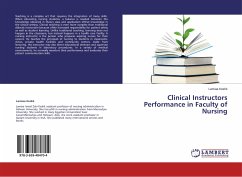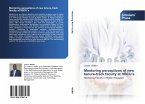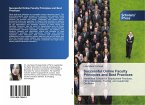In recent years, nursing faculty incivility has been a searing topic of research. This descriptive, quantitative study examined perceived levels of workplace incivility among nursing faculty members employed at community colleges in North Carolina. Findings revealed three themes (a) the description of workplace incivility among nursing faculty aligned with Bandura's (1977) social learning theory and Andersson and Pearson's(1999) incivility spiral; (b) workplace incivility among nursing faculty existed in the community college setting; and (c) most demographic factors did not influence the extent to which faculty members perceived uncivil behaviors among their peers. However, there were four exceptions: hostility and full-time employment, hostility and salary range, privacy invasion and ethnicity, and uncivil behaviors and the number of years of full-time teaching. Implications for nursing education included turning conflict into problem solving and collaboration, and cultivating climates of civility and cultures of openness, inclusion, and social connectedness.
Bitte wählen Sie Ihr Anliegen aus.
Rechnungen
Retourenschein anfordern
Bestellstatus
Storno








